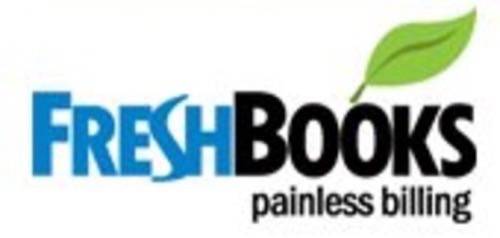We live in a technologically rich and increasingly Web-savvy world. In this post, we celebrate the World Wide Web by selecting our top 10 international products of 2008. What do we mean by ‘international’? We looked for products that were developed outside the U.S., which showed innovation and support for global Web standards. We also tried to choose from a cross-section of countries, although obviously we couldn’t cover all the major countries. That said, we hope you enjoy our selections!

Of course with so many innovative products to choose from all around the globe, some exceptional non-U.S. products didn’t make the cut. So please let us know your own favorites in the comments.
This is the second in our series of top products of 2008, the first can be found here:
Note: the products listed below are in no particular order
1. Remember The Milk: Australia
Remember The Milk, the Australian startup that gave us our favorite task management tools, began when Omar Kilani, Emily Boyd and one stuffed monkey got together in 2004 with a simple idea. The idea grew and in 2005 they launched Remember The Milk.

RTM has seen enormous growth over the past couple of years. By October 2006, 100K people had signed up for the service, 200K by May 2007, 500K by March 2008, but it is only within the past year that RTM has had a significant impact on Web users globally. RTM now boasts over one million users, was named one of CNET’s Webware 100 Award winners in April, and in May ReadWriteWeb readers chose RTM as one of their favorite Web apps. More recently RTM created a gadget for Gmail and an application for the iPhone, pushing its reach further still.
2. Afrigator: South Africa
Afrigator is a social media aggregator and directory for content from the African blogging community, similar in many ways to Technorati. Anyone in Africa with an RSS feed can use Afrigator to index their content and market it to the world.

Launched in April 2007 (alpha), Afrigator has seen a steady 25% month-on-month growth rate, launching beta in November of the same year. In September 2008 MIH Print Africa acquired a majority stake in Afrigator, giving the startup some breathing room to work on their new projectAdgator, Africa’s first ad network. Currently tracking 4159 blogs across the continent, Afrigator is a great place to find content from the “Afrosphere.”
3. Zoho: India
Zoho is an Indian startup that offers a number of office tools, project management software and CRM solutions. It has made serious advances with its office productivity suite during 2008, reaching a milestone of 1 million users in August this year.
At the beginning of 2008, Zoho updated Writer to include support for the DocX file format along with several other features. In April, support for Visual Basic compatible macros was added to Zoho Sheet; macro record and playback rolled out four months later. October saw Zoho Mail emerge from private beta to being publicly available, offering at the same time offline support via Google Gears.

4. Netvibes: France
Members have created more than 50 million start pages spread across 200 countries on Netvibes since its launch in 2006. Available in 76 languages, Netvibes was named one of Times Best Web Sites 2007; but this hasn’t dampened the team’s enthusiasm to make Netvibes bigger and better, as evidenced by the launch of Netvibes Ginger in April 2008.

Ginger is a social version of NetVibes that allows you to share your new content from Flickr, Facebook, MySpace, YouTube, blogs, etc. with friends; it also lets you follow the digital life of your friends. In November, Netvibes added a feature that allows content to be shared via integration with Facebook Connect and Twitter.
5. Dopplr: Finland / U.K.
Dopplr is a startup that lets you share travel plans with your friends, and “highlights coincidence,” giving you a heads up of which friends will be in cities you plan to visit. While the company has only been around since 2007, it has big name backers, and according to Compete has shown significant growth.

Last month Dopplr launched its new city pages, which include creative commons images automatically imported from the ‘interesting’ tag on Flickr – to provide a visualization of visitor activity for cities within the Dopplr database. If you’re not using it yet, you soon will be; we think Dopplr shows plenty of promise.
6. Maxthon: China
The browser market has seen many changes in 2008, with the introduction of Google’s Chrome in September, Mozilla’s Firefox 3 making the Guinness Book of World Records in June, and the slow decline of Internet Explorer as Firefox gains momentum. In Asia however, there’s another browser making waves. Maxthon, according to European web metrics company Xiti, is creating problems for its main competitor Firefox. It comes as no surprise then, that Mozilla recently released an edition of Firefox specifically for China.
Maxthon is a browser created in China and reported to be the second most popular browser in China today. While it doesn’t show up as a contender in most market share reports, it has had a staggering 174 million downloads at the time of writing this post. Using Internet Explorer’s rendering engine, Maxthon has over 1,400 add-ons, proxy switching capability, aggressive ad blocking, split-screen browsing to name a few of its innovative features. We said it two years ago, and we’ll say it again: this is one to keep your eye on.

7. Xing: Germany

, the German social network for business professionals and the first Web 2.0 company to go public [December 2006], today has over 6.5 million members, and is now clearly in the race toward globalization alongside
.
LinkedIn has over 30 million members, and according to Compete a 179.6% year-to-year change that beats Xing’s at 137.6%. It is important however, to note the financials, something we analyzed back in March this year, which may not be completely in LinkedIn’s favor. The data of particular interest concerns user engagement; visitors to Xing stay an average of 43.4 minutes on the site, while visitors to LinkedIn stay an average of 7.8 minutes – a whopping difference of 456%. We think Xing has made some good choices this year, especially the recent hire of Stefan Gross-Selbeck, as reported over on ReadWriteWeb’s Jobwire.
8. FreshBooks: Canada
FreshBooks, the Canadian online invoicing, time and expense tracking service for individuals and small companies, has been showing steady growth over the past year according to Compete, and claims to have over 500K new users since May 2004.

We compared FreshBooks with other online accounting services in August this year, and decided it was easy to use, includes a host of useful features, has an active forum, and offers benchmark data by industry to its users. More recently, we looked at FreshBooks Report Cards which provide an insight into how your business fares in relation to other businesses in your profession. Selected as one of the PICK 20 top Web 2.0 leaders in Canada in September this year, we think Freshbooks deserves a mention here too.
9. Mixi: Japan
Mixi, Japan’s biggest social network (only available in Japanese) was previously known for its closed platform. No more. In August this year, Mixi announced that it is acting as an OpenID provider – therefore bringing the global OpenID to millions of Japanese users.

While Mixi is not acting as a relaying party yet, allowing users to login with OpenID from other networks, the functionality of Mixi user profiles has now increased dramatically. According to the blog Asiajin, this opening up is pretty radical for Mixi standards.
10. Wuala: Switzerland
Swiss startup Wuala offers an unusual online social storage system: it uses the disk space of other members’ computers as part of the cloud. Wuala launched in August 2008 – making it the youngest of our international products.

Wuala differs from our other favorite online storage services in several ways. The advantages of this type of storage include no limits on file size and bandwidth. However the main disadvantage is that regardless of the AES-128 and RSA-2048 encryption, the idea of storing data on machines scattered around the world won’t appeal to all. Still, with 28 million files uploaded as of writing and growing by the minute, Wuala is definitely worth watching.
So, do you think we’ve picked the best 10 International Products of 2008? Please let us know what you think about our choices in the comments. Most importantly, let us know which international products you think are worth tracking.










